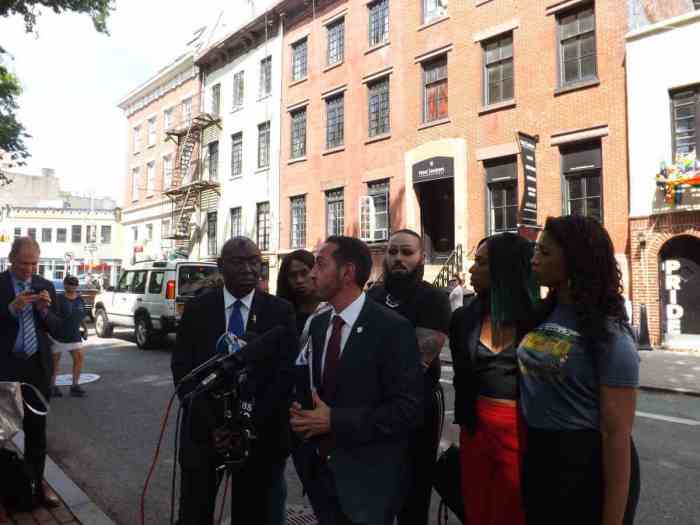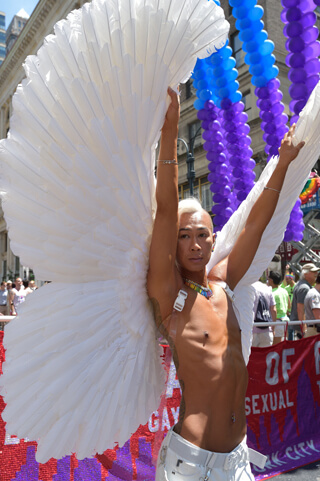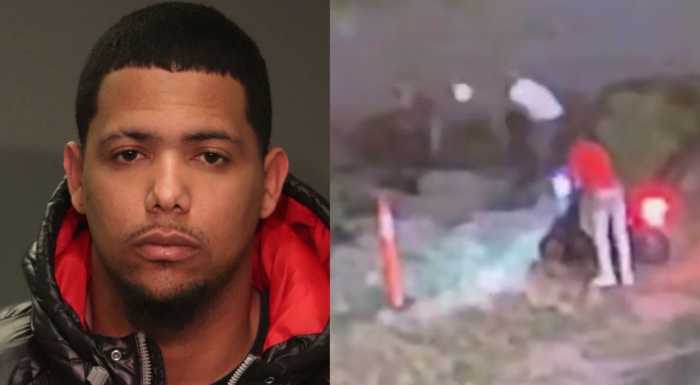Lily Tomlin (r.) with co-star Julia Garner in Paul Weitz's “Grandma.” | SONY PICTURES CLASSICS
As the title character in “Grandma,” now out in theaters, Lily Tomlin is sensational. The actress and comedian plays Elle, a poet who is in mourning for her partner, Violet. As the film opens, Elle is breaking up with her current girlfriend, Olivia (Judy Greer). Then Elle’s granddaughter Sage (Julia Garner) arrives needing $630 for an abortion. Elle and Sage set out on a day-long journey that involves lessons on everything from the feminist movement to tattoos and fisticuffs.
Veteran actress, comedian talks about how she’s like and unlike “Grandma”
Tomlin chatted about “Grandma” and her experiences as a young woman, feminism, tattoos, and getting punched in the face.
GARY M. KRAMER: As a teenager, who would you have run to if you got into trouble like Sage did?
LILY TOMLIN: I had some adult friends, grown women 10 to 15 years older than I was. They lived in the apartment building I grew up in. We’ve stayed friends. One woman is in her 90s now. So I would have gone to one of those women. I had a quality about me — an air of independence — that made me seem probably older than I was. I would babysit their children though I wasn’t much older than their kids.
GMK: One of the points in “Grandma” is that there is a generation that does not understand — or perhaps does not want to understand — the difficulties women and LGBT people have faced in the recent past.
LT: I’m sad the younger generation doesn’t know many people in the women’s movement particularly. There is more effort in the gay community about celebrating its heroes, like Harvey Milk.
GMK: You have rarely played openly gay characters on screen. Was there a reason for that?
LT: In “Tea with Mussolini” I played an archeologist, but not much was made of her lesbianism. I did try to get the Cher part in “Silkwood.” Nora Ephron had called me and wanted me to have the part, but Mike Nichols wasn’t inclined toward me. I was never really offered anything. There weren’t that many lesbian parts out there.
GMK: How did you find a way to create Elle so that she wasn’t “Lily Tomlin?”
LT: I didn’t struggle to create a character. I didn’t have to wear a wig or anything, like I have to in big studio movies to identify the characters’ culture or type. It was my own hair, makeup, clothes, and car. I think Elle was just well created; the script was so fluid and so perfect. It is like “Grace and Frankie.”
GMK: Elle ends a relationship with Olivia, brushing aside her lover’s feelings, masking her own pain and pride. How do you see her character?
LT: Olivia just wants something Elle can’t give her at that point in her life. Elle’s still grieving from Violet’s death, and turning away from that is a kind of betrayal. So she seizes the break-up in her own defense. When you have a long-term relationship it takes a while to get over it. So if Olivia can’t take Elle on her own terms, she needs to split.
GMK: Speaking of long-term relationships, how is married life with Jane Wagner?
LT: Very sweet. We’ve been together a long time. We weren’t going to get married. We used to say we weren’t interested in imitating heterosexuals. But so many people asked us, so we decided: let’s get married. And we did on New Year’s Eve, 2013. We were glad that it came to pass.
GMK: Do you have any tattoos, like Elle does?
LT: [Laughs.] I don’t like tattoos but I like to look at them on other people. I wouldn’t want to have a tattoo myself. I have played a lot of characters with tattoos. I had a butterfly in “Flirting with Disaster” and one in “Admission.”
GMK: What about giving and getting a punch as Elle does? Have you had any notable altercations?
LT: I once had a guy punch me in the face in a bar. It was years and years ago. I’m a mouthy person. I’ve mellowed somewhat. But at the time, I put a dollar in a jukebox in a bar in the Lower East Side of New York, and this punky guy from the neighborhood came in. It was a dive bar, where some low-grade mobsters might come in at the end of the night. And this guy comes in and tells someone to unplug the jukebox. When the guy came over to unplug the jukebox, he looked over at me, and asked if I minded. I said I did; I had money in it. And the punky guy came over and roughed my shoulders and said, “You don’t mind. Do you?!” And I threw a glass of water in his face. He gave me a black eye. I cried for days I was so horrified and trespassed.
GMK: WOW! What was your relationship with your mother and your grandmother like?
LT: I was close to my mother and grandmother. My grandmother died in the 1980s. She had a lively personality. She was sweet and docile. My mother, who died 10 years ago, was very witty and kind and everybody loved her. She was never ridiculing or sarcastic — very upbeat. I wouldn’t have gone to her with anything like Sage does, I would have taken care of it myself, or gone to my friend who was a mature woman.
GRANDMA | Directed by Paul Weitz | Sony Pictures Classics | Opens Aug. 21 | Angelika Film Center, 18 W. Houston St. at Mercer St. | anglikafilmcenter.com | Lincoln Plaza Cinemas, 1886 Broadway at W. 63rd St.; lincolnplazacinema.com



































